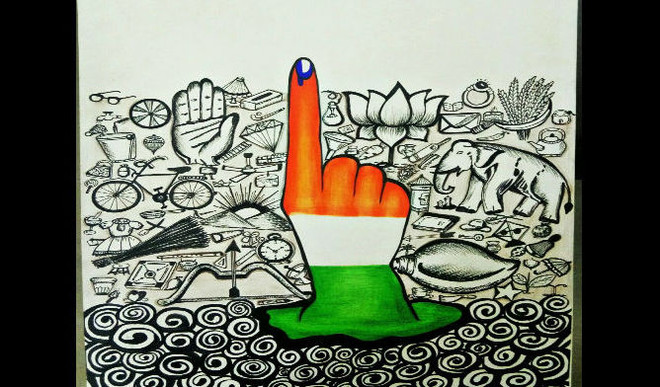As our nation prepares once again for the electoral process, with the 2024 elections announced and the first round set for April 19th, all political parties have unveiled their visions and promises. Today, let’s delve into the considerations guiding Indian voters and reflect on how they perceive their choices. Often, in cinematic portrayals, politicians are depicted as adept at manipulating public sentiment. Let’s explore the reality of how the Indian electorate is influenced.
Economics of Voting: While it’s commonly assumed that a government’s economic performance strongly influences electoral outcomes, the Indian voter tends to prioritize personal financial well-being over national economic indicators. With a significant portion of our population engaged in the informal sector, the trickle-down effect of economic growth isn’t always immediately apparent at the grassroots level. A poignant example is the 2004 elections, where despite a commendable growth rate, the BJP government faced defeat due to economic distress among lower-income groups and in rural areas. Hence, we often witness a flurry of last-minute economic concessions and welfare schemes preceding elections, aimed at directly engaging with the electorate. This phenomenon was evident when the BJP lowered fuel and cooking gas prices just before recent polls. Similarly, the Delhi government under Kejriwal’s leadership has capitalized on such strategies. There are many such examples where governments were defeated despite performing well at state or national level.
Caste and Religion in Indian Politics: Reflecting on the dynamics of Indian democracy, one cannot overlook the significance of caste and religion in political discourse. Political parties often tailor their messages to resonate with specific demographic groups, fostering a sense of identity-based allegiance, this makes them believe that their interests are different from the other groups. Such tactics risk deepening societal fault lines and eroding the fabric of unity. The best example for this is the caste census conducted by the Bihar government and in the name of upliftment of castes only quota has been raised for certain caste groups, on the same line congress has also promised caste census at national level in their manifesto. BJPs promise for revival of Hindu culture is also a part of such politics, along with this we have a number of regional parties that focuses on various caste and religious groups. These strategies perpetuate divisions within our society. In our quest for a more harmonious and inclusive polity, it’s imperative to transcend such narrow identity politics and prioritize collective progress.
Trust in Candidates with Criminal Backgrounds: Another notable aspect of India’s electoral landscape is the troubling trend of voters placing their faith in candidates with dubious criminal backgrounds. Despite judicial interventions mandating transparency in candidate disclosures, the proportion of legislators with criminal records continues to rise. This phenomenon underscores a disconnect between the electorate and ethical governance. It’s disheartening to witness voters prioritizing caste affiliations over candidates’ criminal histories, in a survey conducted it was found that 46% of the people are ready to vote for a candidate with criminal background if he/she belongs to their caste group. Such compromises not only undermine the integrity of our democratic institutions but also impede the enactment of stringent laws against criminal activities.
In conclusion, as we approach the upcoming elections, let’s pledge to prioritize the long-term welfare of our nation over short-term electoral gains. By elevating our discourse beyond parochial considerations and embracing a more inclusive and enlightened approach to politics, we can collectively steer our country towards a brighter future.
Jai Hind!
